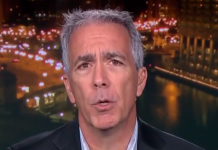Sen. Amy Klobuchar (D-Minn.) is facing a storm of media scrutiny amid allegations that she’s seriously abused her staff, but it turns out that the story is larger than that and abuse is rampant on Capitol Hill.
And labor experts are calling for reform, ThinkProgress reports.
Klobuchar, who’s tossed her hat in the 2020 presidential race, has reportedly lobbed telephones and binders at staffers. Allegations also say she’s contacted prospective employers in order to undermine staffers who are seeking other job opportunities. She was also harsh on employees who took parental leave, according to a New York Times report. Sources told the newspaper that those who did were required to stay in the office three times longer than the amount of time they had taken off. Either that or repay the money they earned while on leave (although a spokesperson for Klobuchar’s office denies this, noting the policy has never been enforced.)
So it should come as no surprise that her office has one of the highest staff turnover rates in the Senate.
Some of her staff — past and present have come to the senator’s defense, especially in regards to her office’s paid leave policies, and Klobuchar simply notes that she has high expectations of herself and her staff.
But it turns out her history of mistreating her staff goes back at least a decade, The Intelligencer reports.
So this begs two questions: Is Klobuchar’s behavior out of the ordinary, or is this practice more common on Capitol Hill than we realized? And if it is common, why is it being tolerated?
After all the only reasons we’re even asking this is because of all the news circulating around Klobuchar.
Culture on Capitol Hill is centered around employer loyalty, say experts on labor and staffing issues. Accountability is rare even if the problem revolves around a member of Congress or say, chief of staff. Workers must often fend for themselves in these abusive environments.
This isn’t lost on Meredith McGehee, executive director at Issue One, a bipartisan organization advocating for political reform.
“Standards and operations on the pure human resources side vary tremendously, and things that in corporate America would either be considered inappropriate or just standard operating procedure don’t exist on Capitol Hill for the most part,” she said. “One of the things that has happened over several years is that some of those offices — the Library of Congress, the police, Architect of the Capitol, and those who aren’t in the representatives’ offices — have gone through a series of changes to address HR issues. The only people who were left out of that were the members and the staff and the committee offices themselves.”
And when dealing with someone in any kind of political office, seeking accountability can be onerous said Judith Conti, government affairs director at The National Employment Law Project. In these cases, a reference is required and elected officials are difficult to remove from office.
“My first job out of law school was for a lifetime-tenured federal judge who was extremely abusive to staff in incredibly well-known ways, and people put up with it because there wasn’t anything you could say to anybody that was going to get him removed from the job,” she said. “It’s not like when you’re working for a private corporation and then your boss sexually harasses you and, if you complain to HR and it’s founded, that person will be fired.”
Whether the employer is an elected official or a lifetime-tenured judge, they aren’t fired in conventional ways, and there’s often a certain amount of prestige that goes along with receiving recommendations from these officials, she noted.
It’s tricky to report members of Congress because it has no HR department and instead utilizes various structures to deal with problems like workplace abuse and sexual harassment, said Brad Fitch, president, and CEO of the Congressional Management Foundation (CMF). The agency conducts research and provides training for congressional staff, ThinkProgress notes.
Congress is taking steps to overhaul its policies regarding sexual harassment by reforming the Congressional Accountability Act (CAA) of 1995 by requiring more surveys and is gathering additional data on public reports and awards and settlements. But for the time being, the process remains complicated, at least until the CAA Reform Act is enacted on June 19.
So is there a solution for all of this?
Fitch said Congress needs to do something more than just guarantee bosses aren’t going belittle or hurl telephones at their employees, adding that a healthy environment is key. Because worker turnover is high, employers could offer incentives like tuition assistance or less lengthy pay periods (as it stands, House members are paid only once a month.) Analysis by LegiStorm shows that the number of staffers in their 40s has dropped significantly from 14 percent in 2001 to roughly nine percent today.
Quite clearly the issue of staff abuse in Congressional offices is a serious subject, something that can’t be quantifiably or completely covered in the confines of this article. It’s a real problem, and frankly, it’s sad to see people being forced to work in such situations.
These people are working for the lawmakers who make resolutions that affect our lives, so this is a situation that needs to be resolved.
You can find out more about Klobuchar and her staff in the video below.
Featured image license CC SA 2.0 by Lorie Shaull via Flickr











